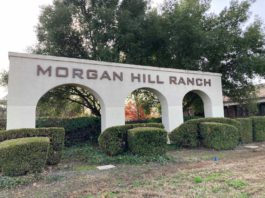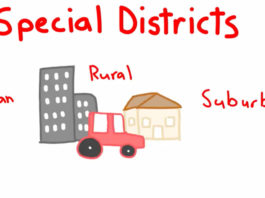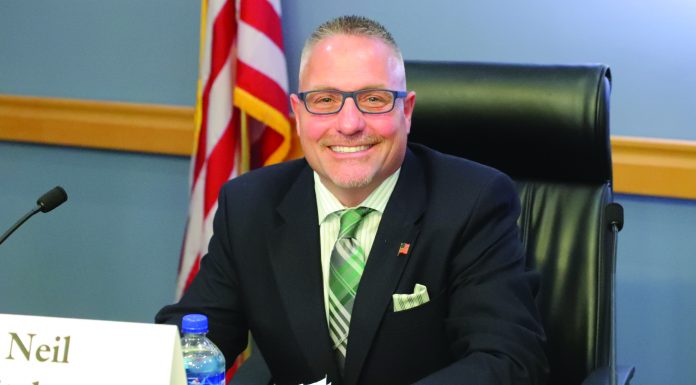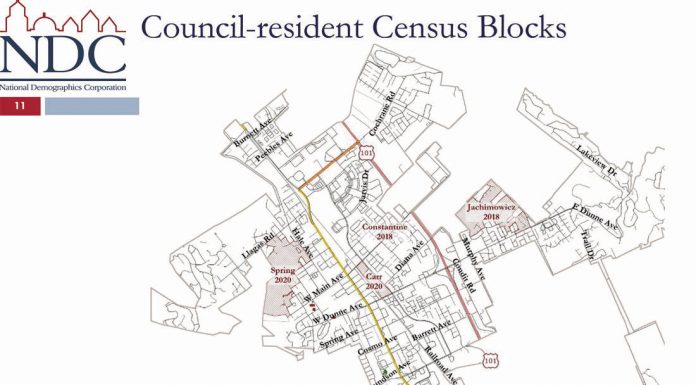Challengers pull papers for Mayoral, Council election
Morgan Hill’s mayor and two city council members will be challenged for their seats in the Nov. 3 election, as a total of eight candidates so far have expressed interest in running for the three local offices.
Five candidates pull papers for Morgan Hill election
The nomination period for candidates for City of Morgan Hill offices in the Nov. 8 election continues through next week, and some local residents have already begun showing their interest in running.
Up for election on Nov. 8 in Morgan Hill are the offices of...
“No Preference’ could mean ‘No Vote’
The nearly 300,000 Santa Clara County voters registered as having “No Party Preference” will soon receive a postcard in the mail outlining what steps they need to take if they want to cast a ballot for a presidential candidate in the March 3, 2020...
County certifies local election results
County election officials certified the results from the Nov. 6 election one month to the day, according to a Dec. 6 announcement from the Registrar of Voters.
The final local turnout for the general election totaled 625,425 ballots cast, representing 70.61 percent of registered Santa...
Council approves 269-home Crosswinds project
The Morgan Hill City Council recently certified an environmental study and approved permits for a 269-home development at the southwest corner of Mission View and Half roads. The city’s planning commission had recommended the project’s approval at a previous meeting.
Known as Crosswinds, the project...
South County woman sentenced to jail for role in U.S. Capitol breach
A federal judge in Washington, D.C., sentenced Mariposa Castro, of Gilroy, to 45 days in jail Feb. 23 for her participation in the breach of the U.S. Capitol on Jan. 6, 2021.
Castro, also known as Imelda Castro, was also ordered to pay a $5,000...
Primary ballots sent to military, voters
The Santa Clara County Registrar of Voters’ Office mailed the first ballots out to military and overseas voters on Jan. 17, for the March 3 Presidential Primary Election.
Both federal and state laws require ballots for voters who are on active duty in the military...
Former 30th District Assembly GOP candidate charged with election fraud
Neil Kitchens, a Republican candidate who ran an unsuccessful campaign for the 30th District State Assembly seat in 2018, has been charged with five counts of election fraud.
Kitchens pleaded not guilty at an arraignment June 27 in Monterey County Superior Court, according to court...
Early results: Morgan Hill chooses Turner for mayor
Mark Turner and dozens of his closest friends and supporters—gathered at Sinaloa Cafe for a traditional election night party—let out a collective applause as they watched the first batch of results of the Nov. 8 balloting come in from the Santa Clara County Registrar...
By-district elections: Draft council maps available for public feedback
More than a dozen city council district map proposals, submitted by residents and a professional demographer, are available for public review on a website created to set up the new election system.The draft maps can be viewed at drawmh.org, which provides a wealth of map drawing tools and demographic information about the City of Morgan Hill.Citizens can review the submitted draft maps and offer suggested changes, or create their own maps depicting four council districts equal in population, according to Morgan Hill Communications Manager Maureen Tobin. Residents can submit maps until Aug. 14.The city council is scheduled to approve an official four-district map in late August or early September. The map they approve will take effect with the November 2018 council election, and remain in place at least until the 2020 U.S. Census is completed.The five-member (including the mayor) Morgan Hill City Council approved the change from the current at-large election system to the new district-based system at their June 7 meeting. The change was a response to a demand letter from an Oakland law firm that claims the at-large system is in violation of the California Voting Rights Act because it limits the influence of minority groups.Under the by-district system, the city’s four council members will be elected by voters within the council district in which they reside. The mayor’s seat will continue to be elected on an at-large, citywide basis, according to city staff.By approving the change, the council aimed to protect the city from a potentially costly civil rights lawsuit. But it also forced the city to fast track the process of notifying the public and creating four new districts equal in population, without gerrymandering.The draft maps posted on drawmh.org include 10 “population balanced” maps with four districts each containing roughly 9,500 Morgan Hill residents. Seven of these were created by Morgan Hill residents. The other three were drawn by National Demographics Corporation, with whom the city contracted for $43,000 to help with the districting process.Also posted on the website are three maps created by residents that are not population balanced, and two maps that depict a single district.
















